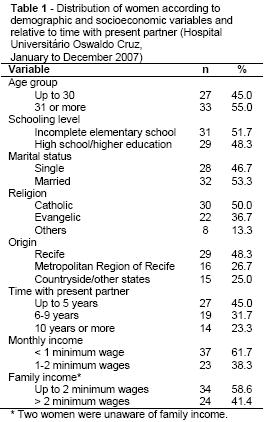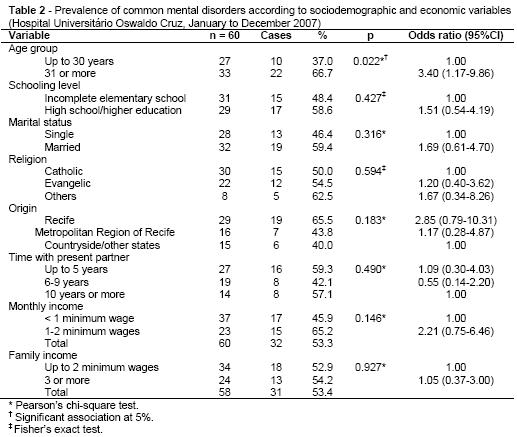INTRODUCTION: A diagnosis of infertility may be devastating for a couple. Many infertile women perceive the situation as stigmatizing, a cause of psychic distress and social isolation. This study aimed at determining the economic, demographic, interpersonal, social and work variables and also the prevalence of common mental disorders in a population of women seen in reference hospitals for infertility (Hospital Agamenon Magalhães, Amaury de Medeiros Integrated Health Center and Instituto Materno Infantil de Pernambuco), and referred to the Mental Health in Human Reproduction Outpatient Clinic at Hospital Universitário Oswaldo Cruz. METHOD: This was a cross-sectional study conducted in 2007 with a total of 60 patients, who answered two self-reporting questionnaires: the Self-Reporting Questionnaire-20 (SRQ-20) and a questionnaire designed by the researcher. RESULTS: Of the 60 women studied, 44% were aged 31 or older. The overall prevalence of common mental disorders was 53.3%. It was much more common in women aged 31 or older than in those aged 30 or less (66.7 vs. 37.0%). The patients who avoided social situations that could cause emotional discomfort presented a higher rate of common mental disorders. CONCLUSIONS: The prevalence of common mental disorders and their association with social coping underlies the need for an interdisciplinary approach, including mental health professionals. Our data confirm the importance of social support and the inclusion of the male partner in the infertility evaluation process.
Infertility; mental disorders; prevalence; social support; stigma



